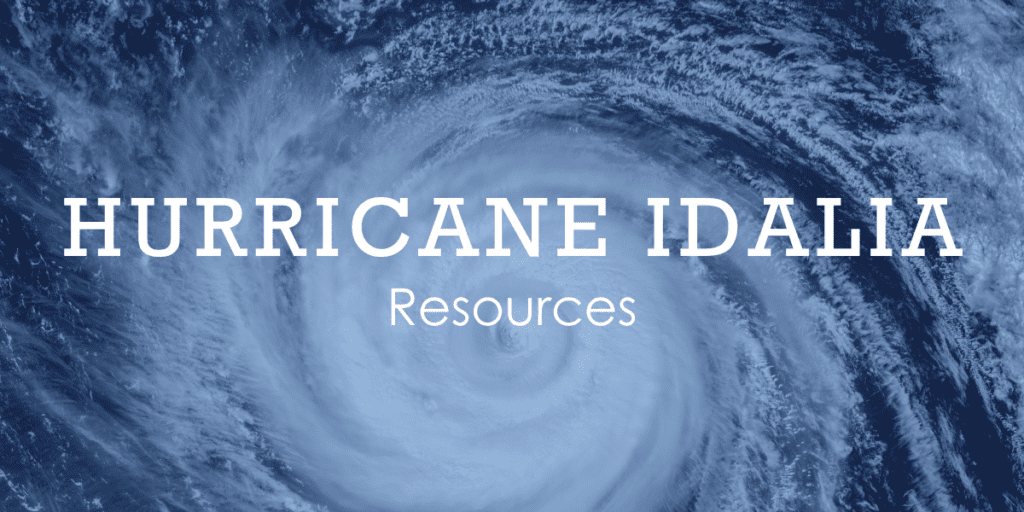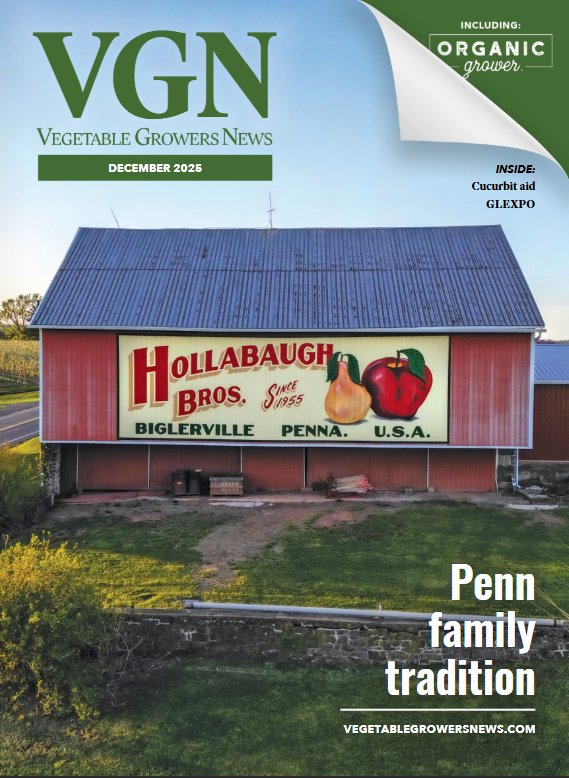Aug 31, 2023Growers assess Hurricane Idalia damage in Southeast
Growers from Florida to the Carolinas are assessing potential damage caused by Hurricane Idalia, which rolled through northern and western Florida and southern Georgia in late August.
Initial reports state damage to south Georgia pecan groves and a state farmers market with power outages disrupting irrigation.
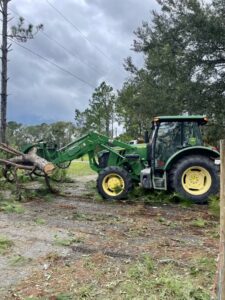
On Aug. 30, the Category 4 hurricane, which was considered “extremely dangerous,” made landfall in Florida’s Big Bend region. After hitting land, the storm weakened to a Category 3 hurricane. The damage assessment was beginning and a long task of recovery is expected, according to state agricultural agencies.
In Georgia, Idalia, which was downgraded to a tropical storm, rolled through the southern and southeast parts of the state, where peaches, blueberries, southern vegetables and other produce is grown.
The Georgia Fruit & Vegetable Growers Association (GFVGA) reports south Georgia growers unable to irrigate their crops due to power outages.
“Lake Park and Valdosta were hit very hard. Trees and power lines down are limiting access to some areas, but a primary concern now is getting power restored for irrigation,” said Chris Butts, executive vice president. “We had a lot of fall vegetable crops planted and if growers are unable to irrigate, they’ll lose whatever is left that the storm didn’t damage. For our fruit crops like blueberries and citrus, there were significant winds in those areas that likely caused some plant damage, but we hope that these avoided the worst.”
The Georgia Department of Agriculture (GDA) reported the Valdosta Farmers Market sustained roof damage with irrigation pivot damage reported in Echols County, in southeast Georgia east of Lake Park, Georgia.
The agency reported pecan tree damage in seven south Georgia counties, including Echols, Pearce, Lowndes, Cook, Wilcox, Irwin and Crisp counties. One farm is reported to have lost 20% of its orchard, according to GDA.
Idalia brought heavy rain, high winds and a dangerous storm surge to the Big Bend region of Florida, the less-populated part of the state where the panhandle meets the peninsula, said Christina Morton, Florida Fruit & Vegetable Association’s director of communications. “Based on early reports, we are grateful to hear that our family and friends who were in the impacted communities are safe,” she said Aug. 31. “Though, the storm certainly left its mark.
“Generally speaking, while a limited number of growers saw significant impacts in the Big Bend region, much of the state’s specialty crop growers were spared,” Morton said. “For growers who were able, normal operations resumed today. In fact, the majority of the state’s industry is set to begin planting next week in preparation for harvest in November.”
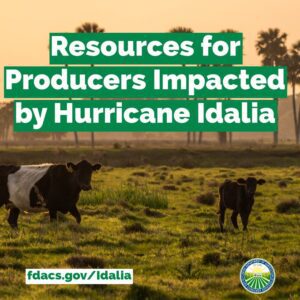 Before the hurricane made landfall, the Florida Farm Bureau was preparing its grower members.
Before the hurricane made landfall, the Florida Farm Bureau was preparing its grower members.
“Hurricane Idalia has already impacted areas of the Sunshine State with wind and rain and is expected to make landfall early Wednesday morning,” the organization said in a news release. In preparation for the storm, Florida Farm Bureau created a hurricane resource page, to assist farm families. Resources will continue to be added to the page as they become available.
“Florida Farm Bureau Federation is here and ready to assist our members in recovery from the storm,” Jeb Smith, president, said in the release.
Members are encouraged to follow Florida Farm Bureau’s social media channels for the most up-to-date information.
After the storm, the Florida Department of Agriculture and Consumer Services (FDACS) provided an update on its efforts to support hurricane response and recover efforts. The department is coordinating with agricultural partners and producers to ensure those impacted have adequate resources and support.
“Hurricane Idalia impacted many rural farms,” FDACS said through social media. “As we move from storm impact to recovery, there are state and federal programs to assist with cleanup.”
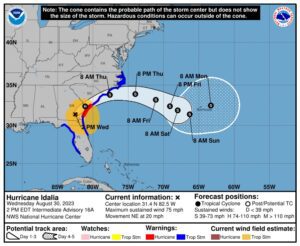 The Office of Agricultural Law Enforcement deployed a 20-man search and rescue team to impacted areas while FDACS provided incident management support at the State Emergency Operations Center for planning and logistics operations.
The Office of Agricultural Law Enforcement deployed a 20-man search and rescue team to impacted areas while FDACS provided incident management support at the State Emergency Operations Center for planning and logistics operations.
Growers who experience losses and/or damages due to the hurricane are being advised to contact the Farm Service Agency hotline at 877-508-8364 or send an email to the FSA disaster group inbox at FPAC.FSA.FLFSA.Disaster@USDA.GOV. More information is available here.








